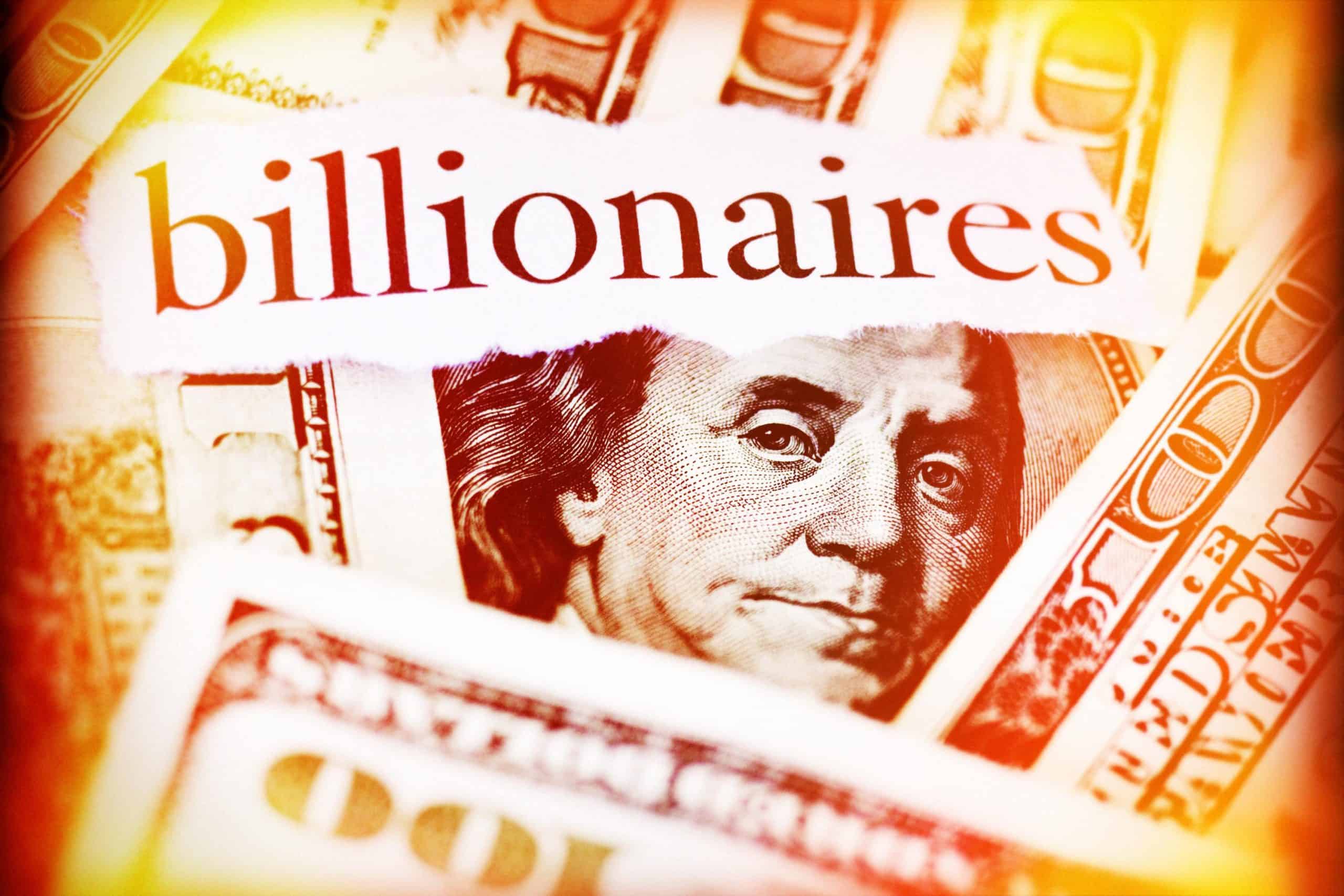
Chase Coleman III, the head of Tiger Global Management, the New York-based hedge fund he founded in 2001, has appeared in several recent 24/7 Wall St. articles.
Retail investors heavily follow the billionaire investor because he is a Tiger Cub, the name given to money managers who worked for investing legend Julian Robertson at the Tiger Management hedge fund before leaving to go out on their own.
Viking Global Investors CEO Andreas Halvorsen is also a Tiger Cub, who went to work for Robertson in 1990 after obtaining his MBA. In 1999, he left to co-found the investment firm he still runs today. Forbes estimates his net worth at $7.2 billion.
Viking Global is a massive hedge fund. As of Sept. 30, 2024, the Stamford, Connecticut-based firm had $27.44 billion invested across 83 stocks, an average of nearly $331 million per stock. Its top 10 holdings accounted for 38.6% of its assets under management (AUM).
While many investors focused on the hedge fund selling out its entire holdings in Broadcom (NASDAQ:AVGO) in the third quarter, the Dollar Tree (NASDAQ:DLTR) sale caught my attention.
The dollar store’s sale is great news for Visa (NYSE:V). Here’s why.
Key Points About This Article:
- While Andreas Halvorsen’s bet on Dollar Tree (NASDAQ:DLTR) didn’t pay off for Viking Global, it did better with its Visa (NYSE:V) buy in Q3 2024.
- The billionaire’s investment firm loaded up on the payments company, buying nearly $1 billion of its stock.
- Sit back and let dividends do the heavy lifting for a simple, steady path to serious wealth creation over time. Grab a free copy of “2 Legendary High-Yield Dividend Stocks” now.
Viking Global Wasn’t the Biggest Dollar Tree Seller

In 2024’s second quarter, Dollar Tree was Viking Global’s 13th-largest position, with 6.8 million shares held, accounting for 2.79% of its entire AUM. That compares to Broadcom in the 21st spot, which accounted for 1.81% of the hedge fund’s portfolio.
So, while Broadcom might have a higher profile, the Dollar Tree sale involved bigger dollars.
WhaleWisdom.com said it was the second-largest seller of DLTR stock in the third quarter, beaten only by Capital World Investors, who sold 7.7 million shares. However, Dollar Tree only accounted for 0.16% of Capital World Investors’ AUM, and it retained 1.58 million shares of the dollar store operator.
Here’s an interesting twist.
In Q2 2024, Viking Global increased its holdings in Dollar Tree by 165%, buying 4.2 million shares of its stock. Based on the average of the high ($137.14) and low ($101.85) during the quarter, it might have paid $119.50 a share, or $506.3 million.
Based on the average of the high ($109.37) and low ($60.82) during the third quarter, it might have sold its holdings for $85.10 a share, or $579.4 million.
Halvorsen and the firm’s opinion of Dollar Tree changed after it reported weak Q2 2024 results before the markets opened on Sept. 4. Its shares dropped to a 52-week low of $60.82 on the news.
Viking Global possibly sold earlier in the quarter when shares were above $100. However, the hedge fund likely lost money on DLTR by doubling down.
The Proceeds Went to Visa

Viking Global acquired a little over 3.5 million shares of Visa stock in the third quarter, making the payments stock the hedge fund’s fifth-largest holding at nearly $1 billion. As of Sept. 30, it accounted for 3.51% of the portfolio.
Visa was one of three new stocks added to the hedge fund with investments of $500 million or more. The other two were Bank of America (NYSE:BAC)–the 12th largest stock–and Flutter Entertainment (NYSE:FLUT)–the 18th largest.
How much did the Visa stock cost?
Based on the average of the high ($293.07) and low ($252.70) during the quarter, it might have paid $272.89 a share, an outlay of $957 million. Three months later, they’re worth $1.08 billion, 12.5% higher than its estimated purchase price. That’s an annualized return of 50%. I’m sure they’re more than happy with the return to date.
Viking Global has owned Visa stock on and off since Q3 2016, so it wouldn’t be surprising to see some or all of it sold in the Q4 2024 13F.
What Would Keep Them From Taking Profits?

Visa is unquestionably one of the better blue-chip stocks for the long haul. In December, Barron’s reported that Visa was a Morgan Stanley (NYSE:MS) top pick for 2025.
“Visa was crowned their top pick due to ‘attractive valuation, benefits from travel + value added services, easing regulatory scrutiny, and favorable tactical trading dynamics.’ The team raised their price target on the stock to $371 from $326 and reiterated an Overweight rating,” Barron’s wrote.
That’s 20% higher than where it’s currently trading.
Overall, 43 analysts cover Visa stock, 32 rating it a Buy, and only one giving it a sell. The target price from analysts is $340, about 10% higher than its share price.
However, probably most compelling is that Visa and Mastercard (NYSE:MA) remain a global duopoly that’s hard to compete with. Morningstar might say it possesses a “wide moat.”
Montaka Global Investments had this to say about Visa (and Mastercard) in its Q3 2024 quarterly report:
“For Visa and Mastercard, their core businesses in global payment processing are being complemented by significant growth in two areas:
- New processing opportunities in peer-to-peer, business-to-business, business-to-consumer, and government-to-consumer payments; and
- Value-added services, including risk, fraud-detection, issuance, acceptance, and open banking,” Montaka CIO Andrew Macken wrote.
You won’t become a billionaire investing in Visa, but you won’t lose it all, either.
Thank you for reading! Have some feedback for us?
Contact the 24/7 Wall St. editorial team.





